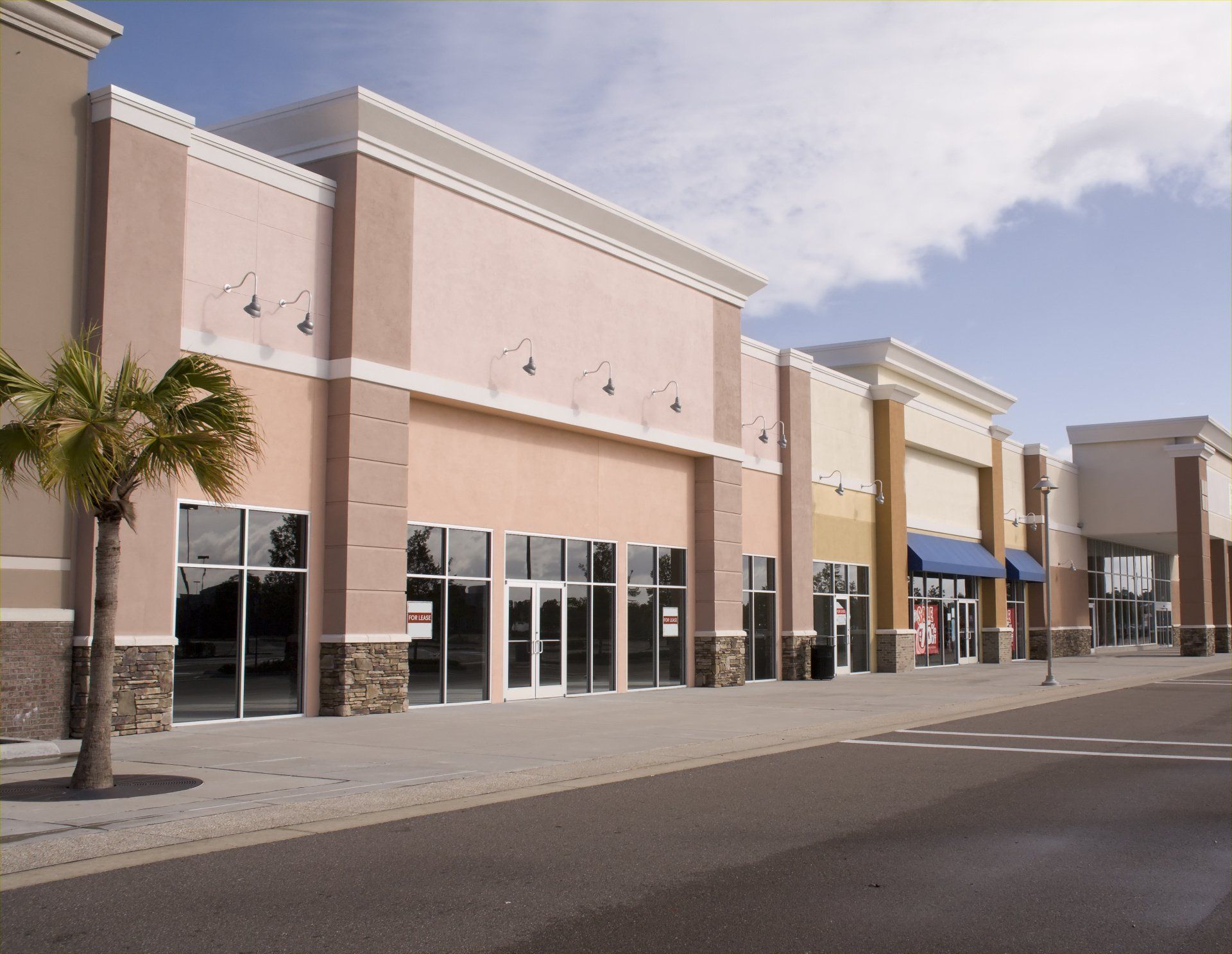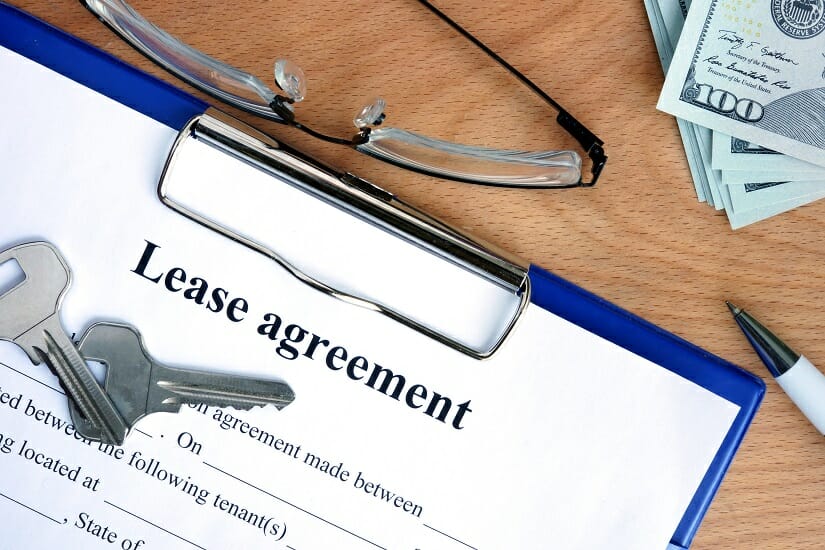
Expert Guidance
Exceptional Outcomes
Why Invest In Single Tenant Triple Net Properties?
Evan Langert • Sep 23, 2021

Certainly there are many different types of investments within the commercial real estate arena. Many people invest in apartment projects, office buildings, shopping centers, hotels, and warehouse buildings with a great deal of financial success. So what is the reason that single tenant triple net properties are so popular?
As you can guess from the description, single tenant properties are simply those commercial properties with only one tenant in them. Some examples would be a freestanding Starbuck's, McDonald's, Dollar General, or Verizon store on the retail side. However, they can also include warehouse and office properties. Think about a Fed Ex warehouse or a Verizon headquarters building...those are also single tenant properties.
Second, "triple net" means that the tenant in the property pays all of the taxes, insurance, and maintenance costs of the property. In a "true triple net lease", the tenant is even responsible for the roof and structural portions of the property. So, in an absolute triple net single tenant property, the landlord actually has no responsibilities whatsoever. The investments are sometimes referred to as "mailbox money" because all the landlord theoretically has to do is to collect a check in the mailbox each month.
With a shopping center or other multi-tenant triple net property, the tenants may reimburse the landlord for the triple net costs, but the landlord still has to collect those sums from all of the tenants and contract for the provision of most or all of the services provided to the property. Plus, if a tenant moves out, then the landlord has to eat that portion of the triple net charges attributable to the space that the tenant vacated. With a single tenant triple net property, that is usually not the case.
Many investors in single tenant triple net properties want the security of a strong real estate investment without all of the management and tenant relations hassles that sometimes come with those properties.
Of course, the financial strength and stability of the tenant are of paramount importance because you are relying on a single tenant for your income. That's why strong tenants like Dollar General, CVS, Verizon, Walmart, and others are so popular. Also, the location of the property is still extremely important. After all, there will come a day with basically every property when the tenant will move on to another location, go out of business, etc.. When that happens, you have to have confidence that you will be able to lease the property to another tenant if you still own it.
Typically, the cost of a single tenant triple net property (as with any other real estate investment) will vary depending upon the perceived safety of the investment. Factors in the safety of the investment include the strength and stability of the tenant, the length of the lease term, the type of construction (for instance, a specially designed building like a Checkers or a Sonic isn't going to attract most fast food tenants), the location (traffic count, number of households located nearby and the median household income of those households).
There is a lot of analysis that goes into finding the right commercial real estate investment, and the same is true with single tenant triple net properties. If you are not a commercial real estate expert, it is highly recommended that you obtain the services of a qualified broker or advisor. If you have additional questions, please don't hesitate to call us.
Share
Tweet
Share
Mail
CRE Insights

by Evan Langert
•
23 Sept, 2021
Your commercial real estate lease can be a bit of a mine-field. These documents are drafted by very smart and experienced attorneys. Language is often written such that it appears to give the tenant a right, while more subtle language perhaps even located in a different section of the lease often undermines or mitigates the initial language. Also, what is not in the lease is sometimes just as important as what is contained in the lease. Here are five examples of things that pervade commercial real estate leases: Is There A Landlord Default Section? Most commercial real estate leases include several paragraphs (or even multiple pages) describing what constitutes a default by the tenant and what the landlord's remedies are in the event of a default by the tenant. However, when it comes to landlords defaulting under the lease and the prospective remedies are for a tenant in the event of a landlord default, you will frequently find that the lease doesn't contain one word even stating that it is possible for the landlord to be in default. Default is obviously an important topic or the landlord wouldn't spend so much verbiage describing it when it comes to a tenant default. Yet, when it is the landlord in default and the tenant's remedies that are in play, there isn't a single word about it in many cases. Is There A Landlord Insurance Requirement? Leases typically require the tenant to carry commercial general liability, fire and extended coverage, worker's compensation, business interruption and extra expense, and various other insurance coverage. Further, there is typically language outlining the ratings and other qualifications of the companies through which the tenant may obtain such coverage, There is also usually language describing various clauses that must be contained in the insurance policies of the tenant. However, much like our discussion of Landlord default provisions, there is typically not a single word in a commercial real estate lease requiring the landlord to obtain any insurance coverage at all. Obviously, they need to insure their building against fire and other casualty. Also, a landlord typically operates and manages the property, and can cause a "slip and fall" or other accident damaging person or property just as easily as the tenant can. Yet there is usually not a word even requiring the landlord to have coverage. Can You Assign Your Lease? Sometimes business doesn't go as planned. Retail businesses fail, companies get bought and/or merge with other companies, principals decide to retire. If any of these things happen and you want to find someone else to take over your lease, how easy or hard does the lease make that to do? Most leases say that you can only assign your lease with the landlord's permission. That's understandable. The landlord shouldn't be able to let you just transfer your lease to anyone. However, how tough is it to get their permission? If your lease says that the landlord can withhold its permission "in the landlord's sole and absolute discretion", then they can turn you down for any reason at all. They don't have to be reasonable about it at all. On the other hand, if it says that the landlord can't unreasonably withhold or delay its consent, then the landlord has to be "objectively" reasonable about giving its consent. What Is Your Protection Against Competition? If you open an Italian restaurant in a shopping center, you don't want the landlord to let your staunchest competitor open up two doors away from you. Likewise, if you are a title company leasing first floor space in a prominent office building, you don't want the landlord leasing the space across the hall to your rival. Without specific language in your lease protecting you against these things, your landlord has the right to put whoever he or she wants in the shopping center or office building. Make sure that you have it. Who Is Building Out Your Space And Who Is Paying For It? If you are occupying a space in an office building or shopping center that needs work done to it prior to your occupancy, who is doing that work...the tenant or the landlord? Likewise, who is paying for that work? Landlords frequently either do some or all of the buildout work in retail or office space. They often pay for some or all of that work via either a "turnkey buildout" or a "tenant improvement allowance". However, they don't advertise those things. You have to know to ask for them, and you or your representative has to know what is typical in the market place. Many times, unsuspecting and inexperienced tenants will take on large costs associated with building out their spaces because they didn't even know that the landlord might participate in the costs. *Nothing contained in this article or newsletter is intended as either brokerage or legal advice. Each deal is different and each lease is different. You are urged to seek professional advice from a competent commercial real estate broker and attorney for advice so that such advice can be dispensed as it pertains to your transaction specifically. Please do not rely on the information in this newsletter as a substitute for such professional advice. Unless we have been hired to represent a client, we accept no liability for anyone's reliance on anything written in this article or this newsletter.

by Evan Langert
•
27 Aug, 2021
Yes! Here's Why: Prevent Competition If you are like the vast majority of tenants, then you do not want your competitors opening up in close proximity to your operations. As an example, let's suppose that you wanted to open a pizza restaurant in a large shopping center. Your expectation (if you are like most tenants) would be that there would be no other pizza restaurants in the shopping center other than yours. The bottom line is that, if someone is going to buy pizza in the shopping center that you are in, you want it to be from you. You don't want the landlord to lease a space two doors down to Pizza Hut and then another space three doors further down to Ledo's. This concept is not unique to retail properties, either. If you are opening up a title company on the third floor of an office building filled with lawyers and real estate brokerage companies, you don't want to see the landlord lease prime space in the lobby of the same building to another title company. In both cases, it can cut deeply into the profits of your business. Landlords Can't Lease to Whoever I've been in this industry for thirty plus years, and I've seen many very upset and very disappointed tenants that relied on the notion (sometimes even unspoken) that "my landlord would never do that to me". The fact is that, if you don't want certain stores or office users in the same shopping center or office building where you are leasing space, then you need to have what is known as an exclusive use clause. Drafted properly, this clause will not allow the landlord to lease any other space in the project to your competitors. The prohibition can be stated in terms of particular offerings (for instance, a prohibition on the landlord leasing any space in the project to any business operation primarily serving pizza. It can also be stated in terms of specific stores. For instance, a learning center may have a clause stating that the landlord cannot lease space to a learning center such as Kumon, Mathnasium, Kaplan, or C3. No matter how it is stated, pay careful attention to the language. Most landlords will keep loopholes in it when they can. Landlords Could Be Penalized For Violation Also, make sure that there is a stated and at least moderately severe penalty in the language in case the landlord breaches that section. Once or twice, I've seen otherwise good exclusive use clauses that have no real penalty set forth in them. For instance, either no penalty is stated at all or the penalty is relatively meaningless. For instance, I've seen several exclusive use clauses where the tenant's only remedy is to terminate its lease. The problem with that is that, if a competitor comes in that the landlord would rather have in the center, it can just lease other space in the center to your competitor. The landlord may have decided that they'd rather have that competitor than you, and they know that your only remedy is to close up shop. Usually, they've made a calculated decision that you likely will close, but they feel that their center will improve overall because they have your competitor in the center instead of you. It is far from unique to local mom and pop tenants to want an exclusive use clause. National and regional tenants usually insist on them. In fact, if you lease a space in a large shopping center with a lot of national tenants, there will usually be an exhibit to your lease listing all of the exclusive use clauses that other tenants of the project have an precluding you from violating any of them. Hire A Professional The old saying is that "an ounce of prevention is worth a pound of cure". A well written exclusive use clause is your ounce of prevention if you want to "protect your turf" in a commercial real estate setting. These clauses can be tricky, so please make sure that you have them drafted by a professional.
8455 Colesville Rd, Suite 1150, Silver Spring, MD 20910
8815 Centre Park Dr, Suite 330, Columbia, MD 21045
Contact Us
Copyright 2022 The Langert Commercial Group - All Rights Reserved Accessibility Statement | DMCA Notice | Privacy Policy | Site Design: QualifiedAgent
The Langert Commercial Group is affiliated with Douglas Realty.



